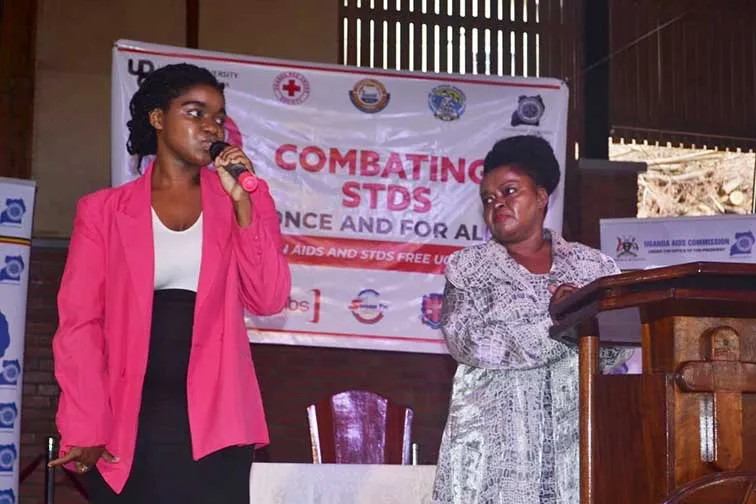By Vanessa Kyalimpa
At last year’s World AIDS Day on December 1, UN Secretary General António Guterres expressed optimism that it is still possible to end the epidemic by 2030. However, Guterres emphasized that for that to happen there would be a need for “stepped up action and greater solidarity.”

In a direct response to Guterres call for “stepped up action,” Brendan Katushabe, a Uganda Christian University (UCU) student, has taken matters into her own hands, to champion advocacy about the danger that still exists with Acquired Immune Deficiency Syndrome (AIDS).
She says there is usually more hype about the epidemic during the commemoration of the World AIDS Day and noticeable silence for the rest of the year. The year-four student of Bachelor of Laws says she is aiming towards change by taking action to better empower communities with information on sexual and reproductive health – namely HIV (human immunodeficiency virus) and other sexually transmitted diseases.
Her vehicle is an advocacy initiative called Own Your Future (OYF), which she founded in early 2022.
Katushabe says many university students in Uganda are ignorant about sexual and reproductive health, which makes them prone to contracting Sexually Transmitted Diseases (STD). Through the OYF initiative, she holds sensitisation campaigns in a more structured manner. One such activity was in January 2022 at UCU’s Nkoyoyo Hall.
Under the theme, “Combat STDs once and for all, advocating for a free, healthy Uganda,” the event attracted information seekers as well as other promoters of sexual and reproductive health.
At the January campaign, Joanita Kawalya, a vocalist with Uganda’s Afrigo Band and activist on health and reproductive health, thanked Katushabe for organizing such a platform and encouraged students to take advantage of initiatives like those to inform themselves.
The activity, which included a free medical camp, was attended by students from UCU, Makerere University, Kyambogo University, Nkumba University and Kampala International University.
After testing the waters with her initiative, Katushabe was back again at UCU in March 2022, this time to launch her program. At the launch, Katushabe had the backing of Reproductive Health Uganda, a Non-Governmental Organization (NGO), and Uganda’s Ministry of Health.
“We need to put emphasis on the health of the young people for the next 10 years,” Dr. Richard Mugahi, the assistant commissioner in charge of reproductive and infant health at Ministry of Health, said at the launch of OYF in March. He added: “We have the capacity to do all it takes if all partners harmonize their approaches and strategies.”

The president of the UCU Debate Club, Suzan Owomugisha, said that many young people had forgotten about the importance of paying attention to their sexual health.
“Ever since the start of Covid-19, people have been minding more about the pandemic than any other disease,” Owomugisha said, noting that the information that was shared during the OYF activities will help reduce the prevalence of teenage pregnancies and HIV among young people.
Edbert (full name concealed), who is living with HIV, urges the community to restore hope among people living with HIV, instead of stigmatizing against them.
“Stigma is one of the biggest challenges affecting most people living with HIV,” Edbert said, emphasizing that with concerted efforts from the community, negative perceptions and shame can be eradicated.
HIV stigma was among the topics of discussion in a May 2022 OYF-hosted Twitter Spaces event, where the chief panelist was Emily Katarikawe, the Uganda Country Director of jhpiego, an NGO that advocates saving lives and improving health. Katushabe says more such engagements have been lined up to promote health advocacy.


